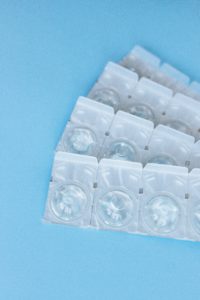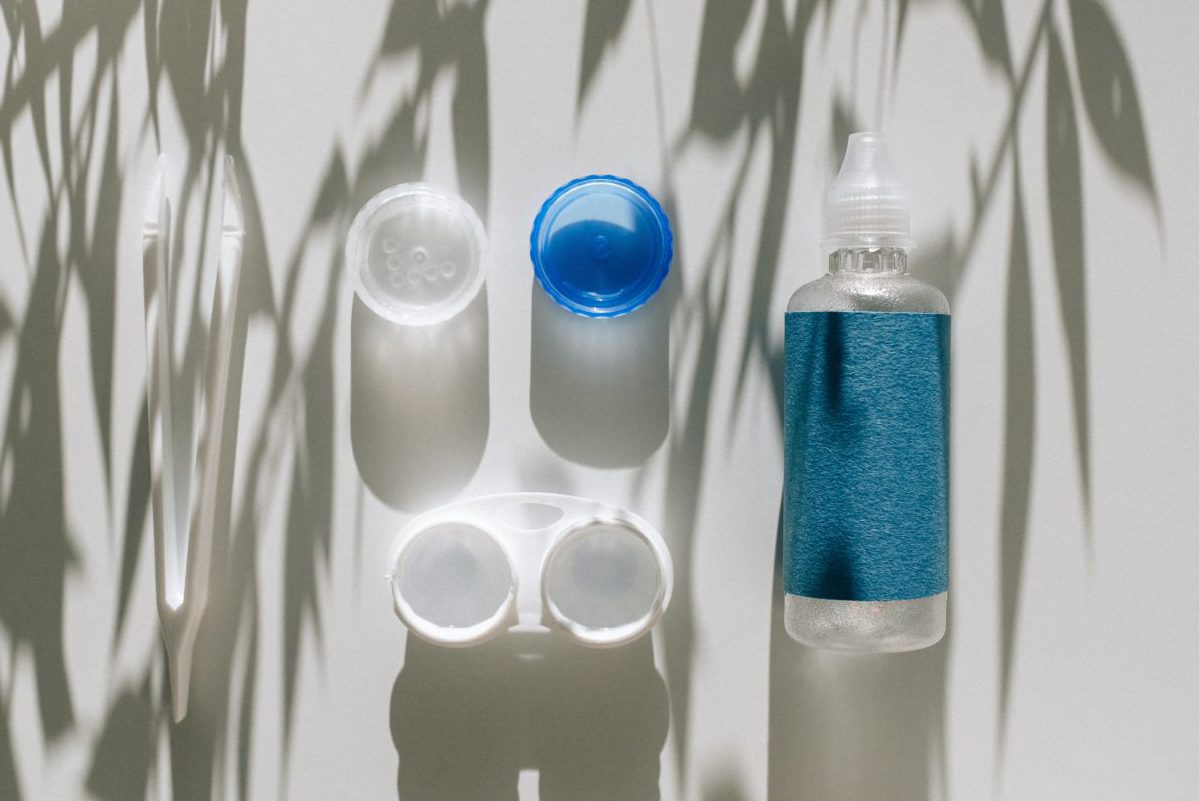Snow glasses and sunglasses are essential for protecting vision and contacts from damaging UV light, glare from the snow, and from any loose bits of trash or snow that land in your eyes. Keep in mind, however, that you should be wearing glasses or goggles when it is cold out, both to prevent the wind from drying out your eyes and to shield them from UV radiation. With this time of year comes the chilling, harsh weather, and these conditions can be extremely hard on your eyes and colored eye contacts. We love how wonderful the Michigan experience is during the colder months, but these harsh conditions often irritate the eyes.
Cold, windy weather is hard on the eyes, but the heat from your central furnace and cozy fireplace often makes things worse. Dry air can cause damage to your eyes, making it tempting to rub or scratch, which causes further damage. Cool winds, and even gentle breezes, may make it easier for your eyes and moist surfaces to evaporate.
Even though companies make their contacts with added moisture, your eyes may still feel dry in the cold. If dryness is an issue in winter, your eye doctor can prescribe moisturizing drops or lenses designed to keep the moisture in. If you suffer from dry eyes in the fall and winter, having a backup pair of glasses that you switch out with contact lenses several times per week may help. In a worst-case scenario, if cold weather is contributing to your lingering eye problems, switch out contact lenses for glasses until you can visit an eye doctor.
If your contacts are not feeling as comfortable as they should be during this winter season, the best thing you can do for your eyes is to schedule a contact lenses consultation with your eye care provider. Ask your health care professional what types of re-wetting drops or artificial tears are best for your eyes. Putting in artificial tears or contact lens re-wetting drops regularly will keep your lenses moist, make it easier on your eyes, and help you keep clear eyes.
You may experience some dryness or discomfort during the colder weather, but that is something that can be addressed with the use of eye drops or artificial tears. This lessens discomfort caused by irritating your eyes, which is the result of wearing contacts too much on cold winter days. If you wear contacts during winter, the symptoms of dry eyes can be particularly bothersome, making it difficult to wear contacts.
In general, wearing contacts during the cold weather may make dry eyes worse, particularly if you are moving between cool and hot environments. While many contact lens brands have features that provide added moisture benefits, lack of moisture, wind, and other conditions in the cold weather may all be too much for eye comfort. The winter frigid, crisp, and breezy outdoors coupled with the warm, dry heat inside your home can be hard on your eyes – particularly if you wear contacts.
You do not need to fear the cold months: Dry eyes and contact lens headaches are preventable conditions, as long as you follow our expert best contact lens tips and tricks to maintain your eyesight health in the winter. Our eyes face plenty of challenges during winter, but that does not mean you should have to make do with discomfort.

It is possible to mitigate the seriousness of dry eyes in winter–and still wear contacts–by making gradual lifestyle changes. Small, gradual lifestyle changes can decrease the itchy eyes in winter and enhance your contact wearing.
You should also avoid sleeping with contacts, since this may increase your chances of infections and irritated eyes in the winter. Perhaps most importantly, do not wear contacts when sleeping, since this may increase your risk of developing an eye infection. If you get a sunburn on your eyes, it is usually cleared in just a couple of days, but during this period, you cannot wear contacts.
The lenses may begin to break down and build proteins, which increases your risk for an infection in the eyes. These techniques not only harm contact lenses, but they may also cause permanent damage to your eyes if you are wearing compromised lenses. Contact lenses can be a major improvement to your vision, but without the many downsides that normal glasses have, such as getting fogged up in wet conditions or getting pressured up against the nose and ears.
Glasses are an excellent option to give your eyes a break from contacts, but they are also stylish, they block wind, dust, and debris out of your eyes, and they add extra UV protection. Not only can sunglasses keep UV light away, but they also act as a barrier between your eyes and the wind. You may come into contact with UV protection, and if you are especially sensitive to bright lights, you might want to pair these up with sunglasses (which also will protect the sensitive skin around your eyes). Wearing glasses at night can help to give your eyes the break they need from contacts, while also allowing you to keep up the look you prefer in daylight.
Lasik eye surgery also solves these common eye health issues and is a healthier alternative to wearing colored eye contacts constantly. Snow can reflect UV light, causing just as much damage to your eyes as sitting on the edge of the pool without any eye protection. UV exposure, including UVA and UVB, causes cumulative damage to your eyes, potentially leading to sun-induced crystallographic lenses – aka cataracts, corneal, and conjunctival lens damage, according to a review paper published in Eye & Contact Lens.
Extreme cold also reduces the effectiveness of contact lens solutions, so if you are using a bottle that is been opened already to clean and store contacts, the solution might not be as effective at removing the buildup, which could result in increased risks for irritation and infections. One of the best ways to safeguard yourself from any eye problems, no matter the weather, is to ask your doctor about prescriptions for disposable contact lenses (if you are not already using these). If you are susceptible to dry eyes during winter, glasses definitely will not worsen the issue as contact lenses do, and they are usually cheaper over the long haul. Always pack some contact-lens-friendly eye drops, recommended by your eye doctor, to provide some brief relief for any discomfort.
